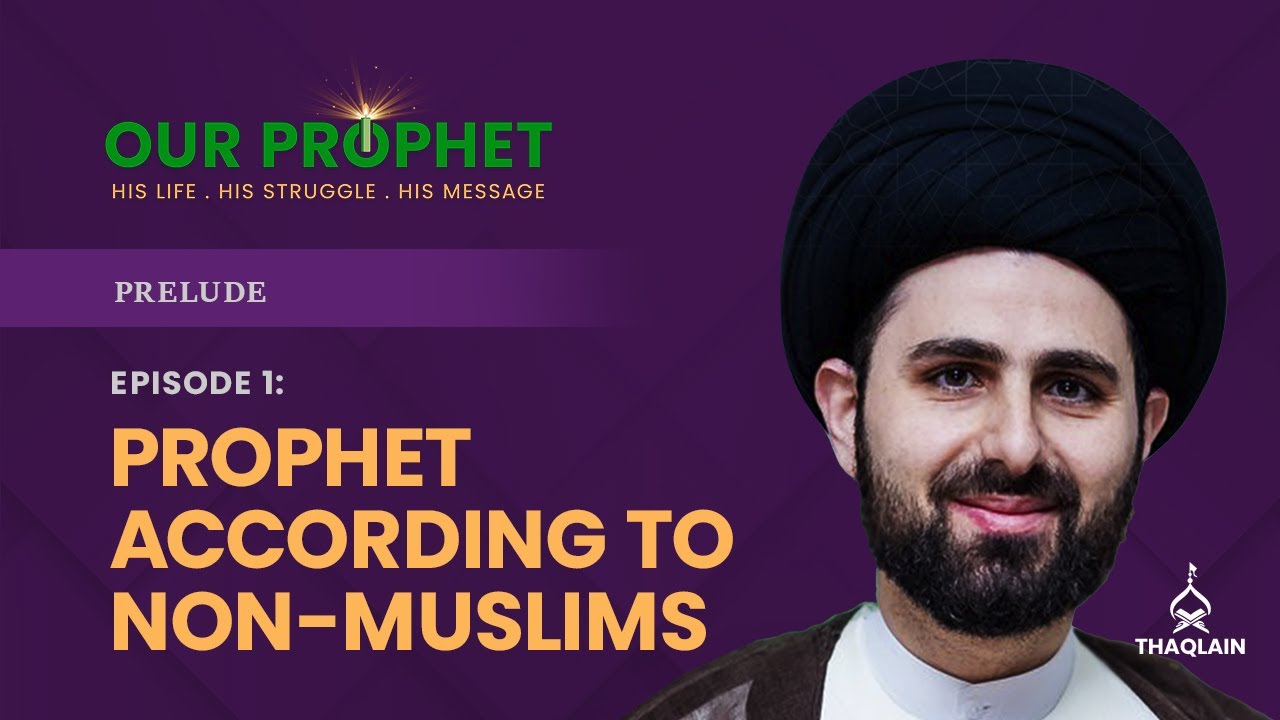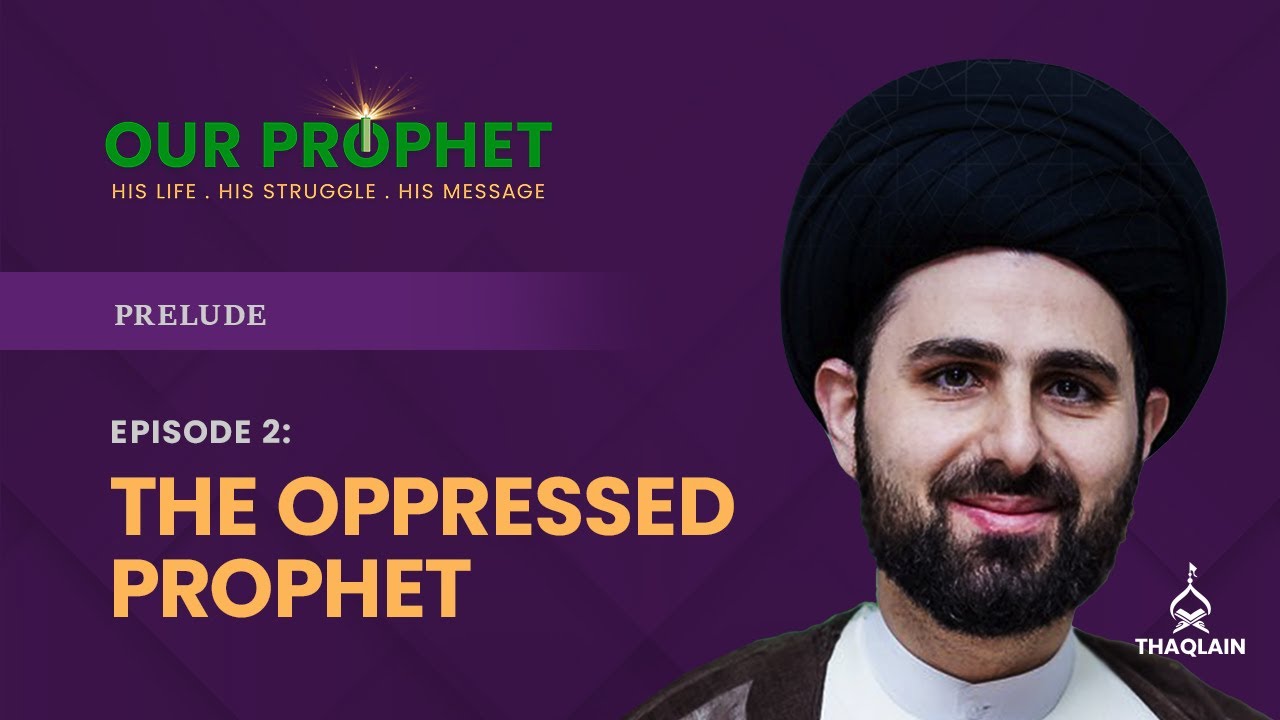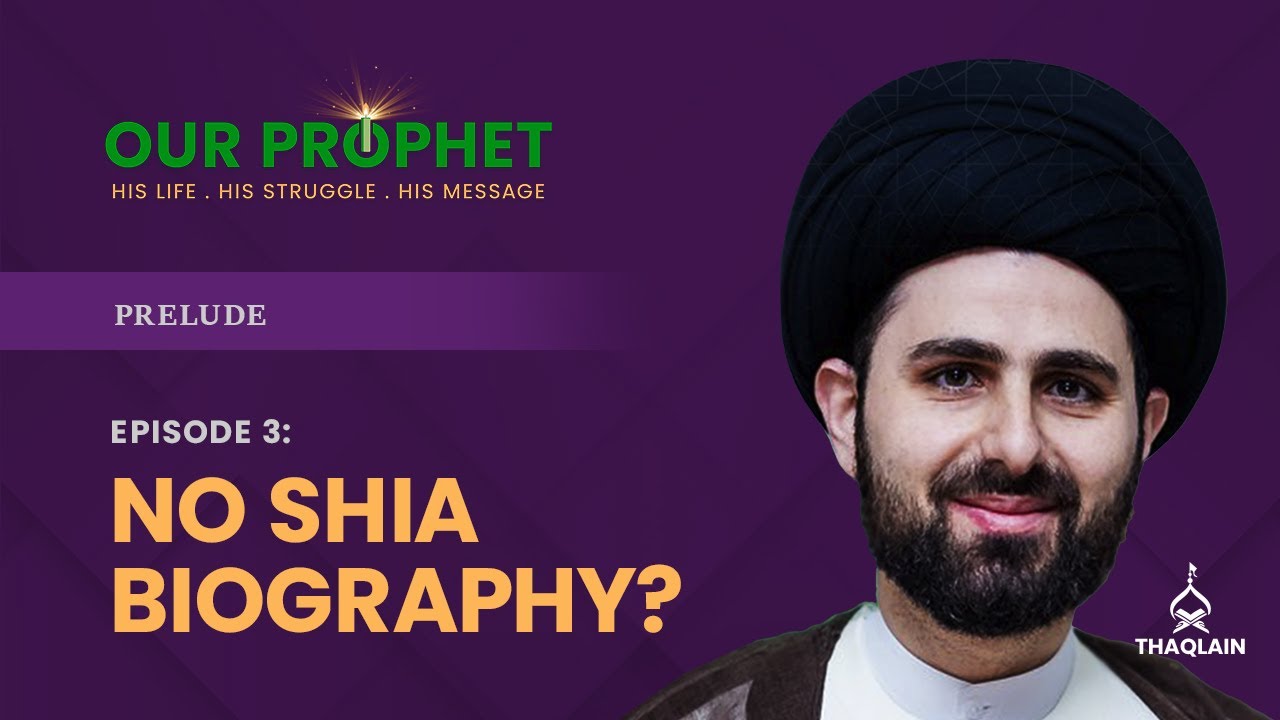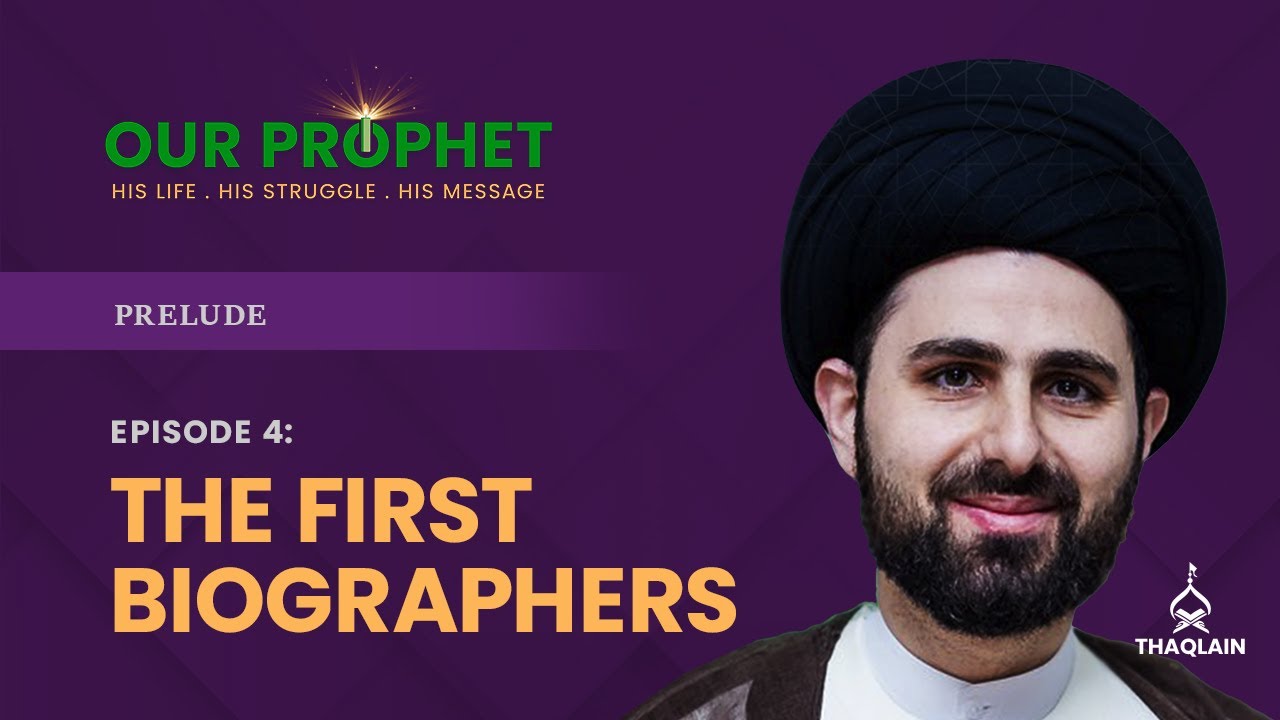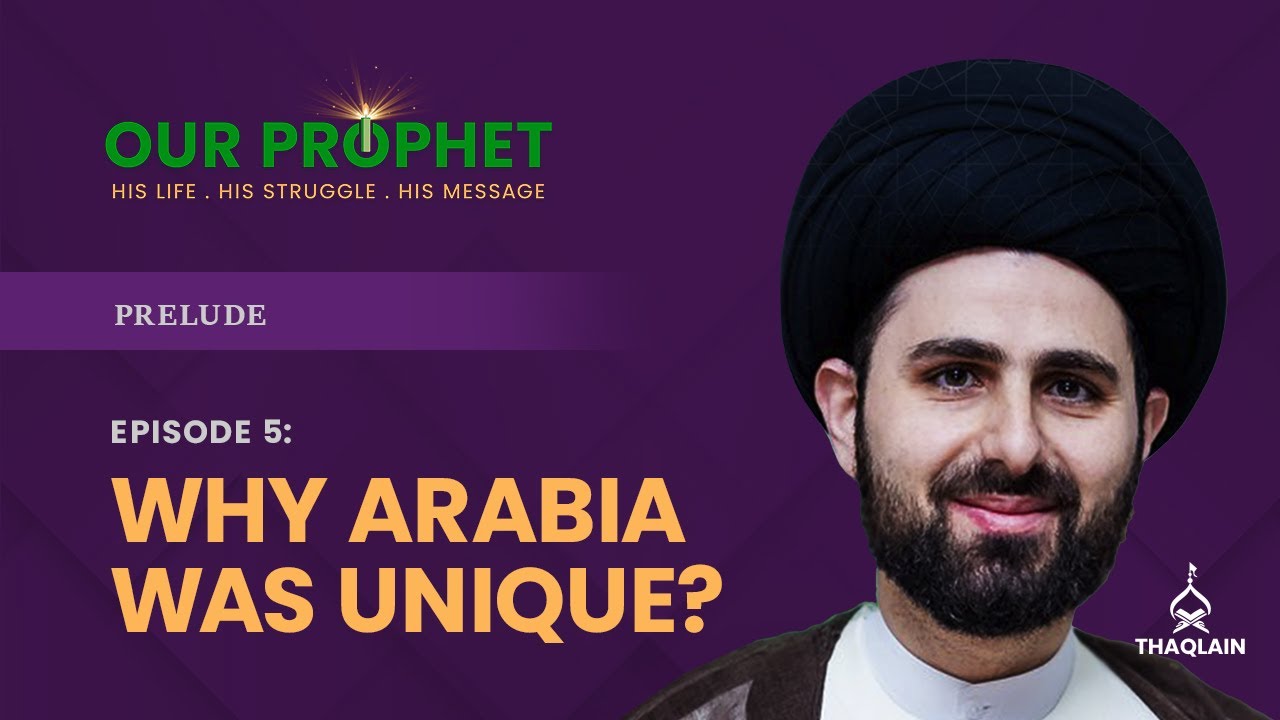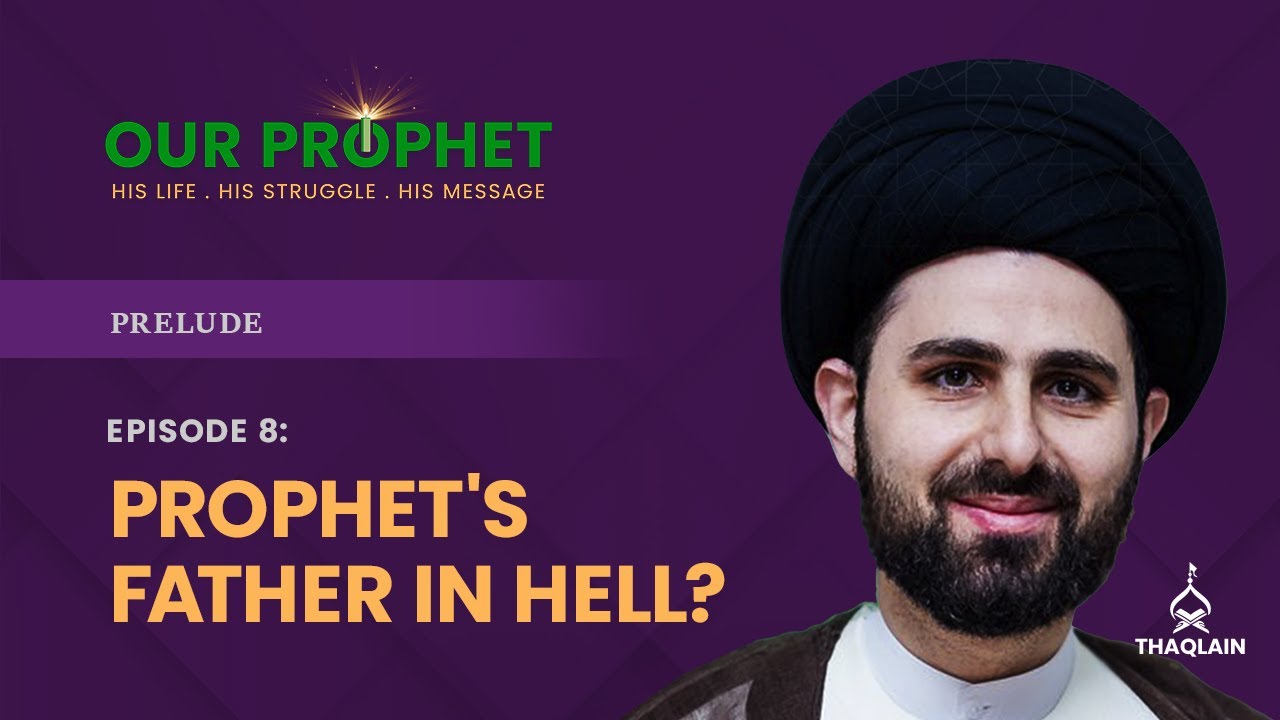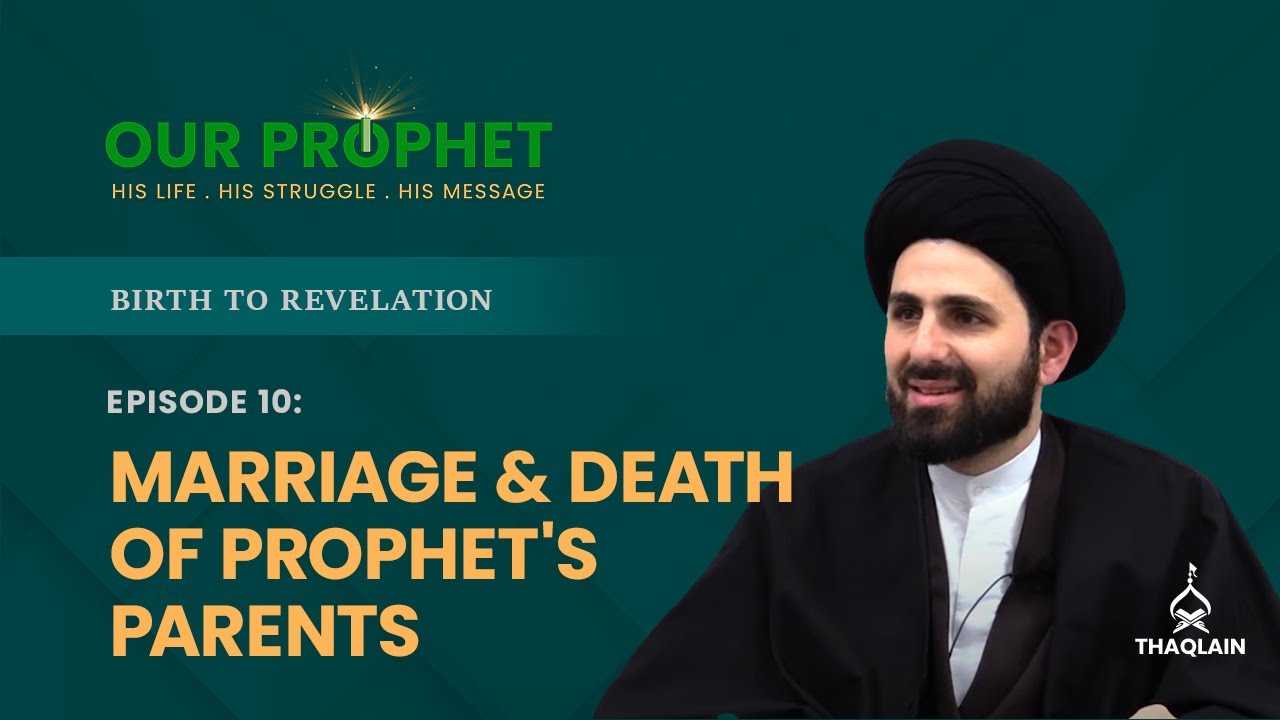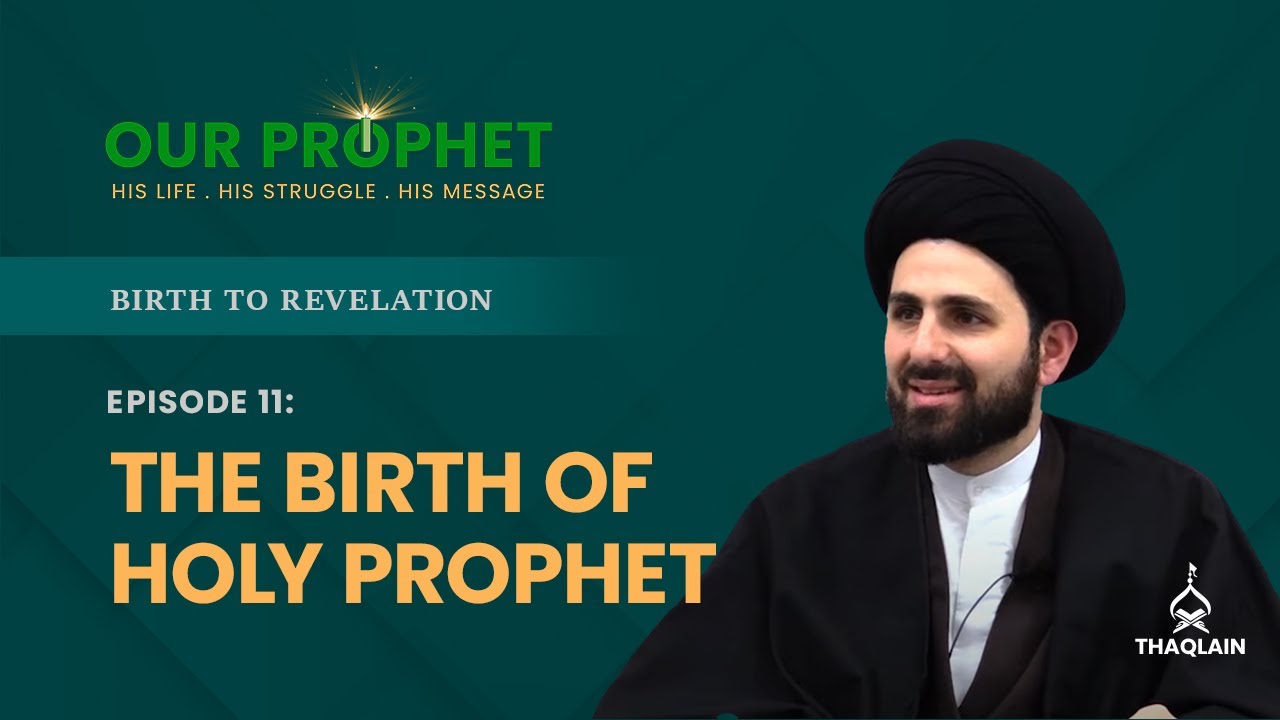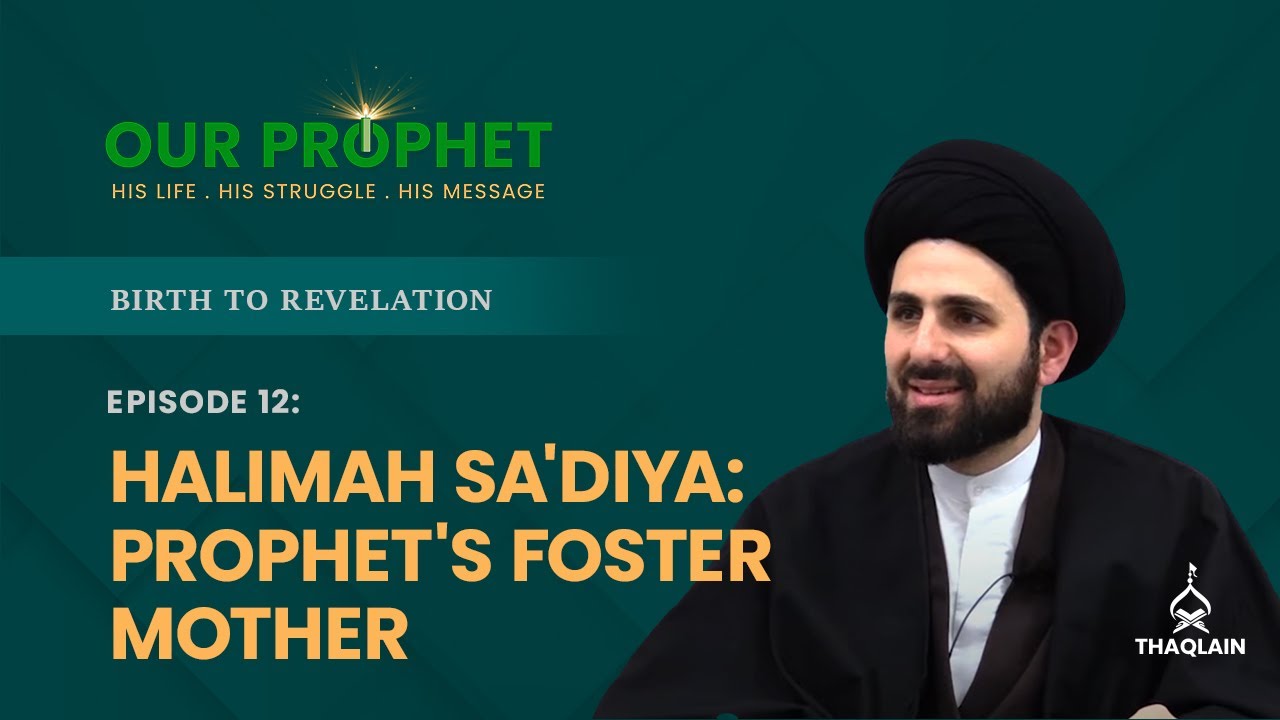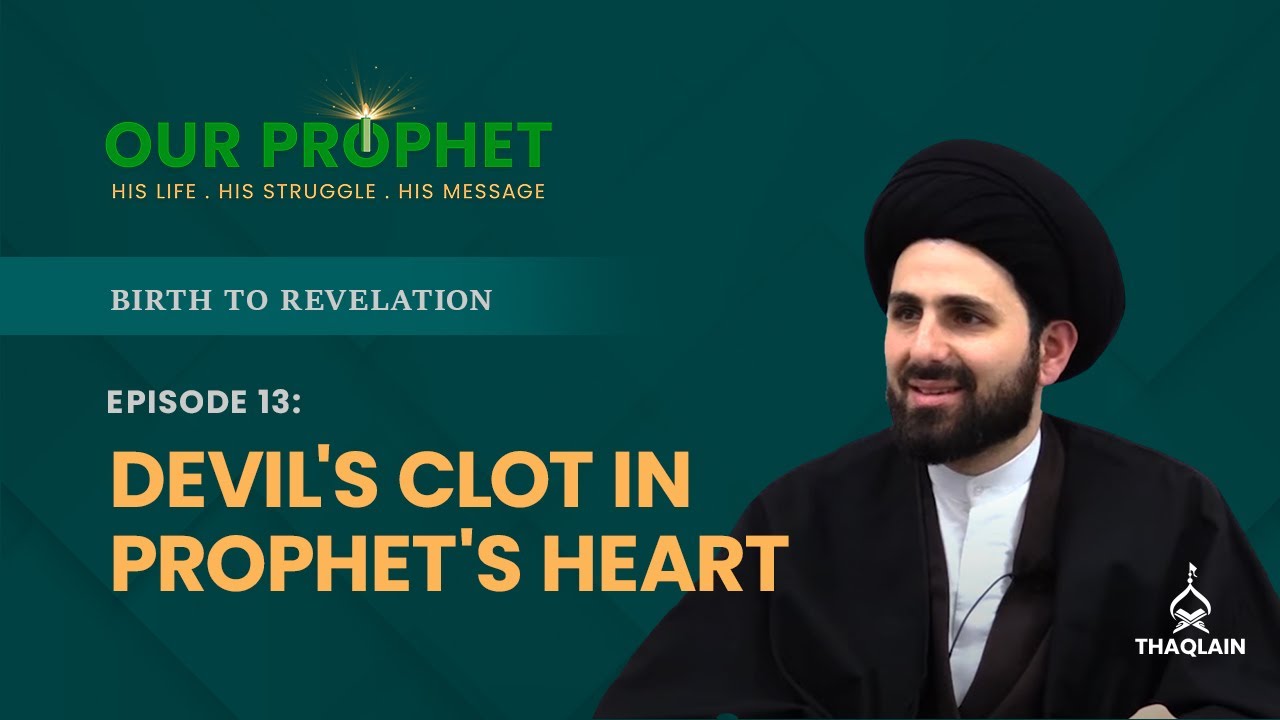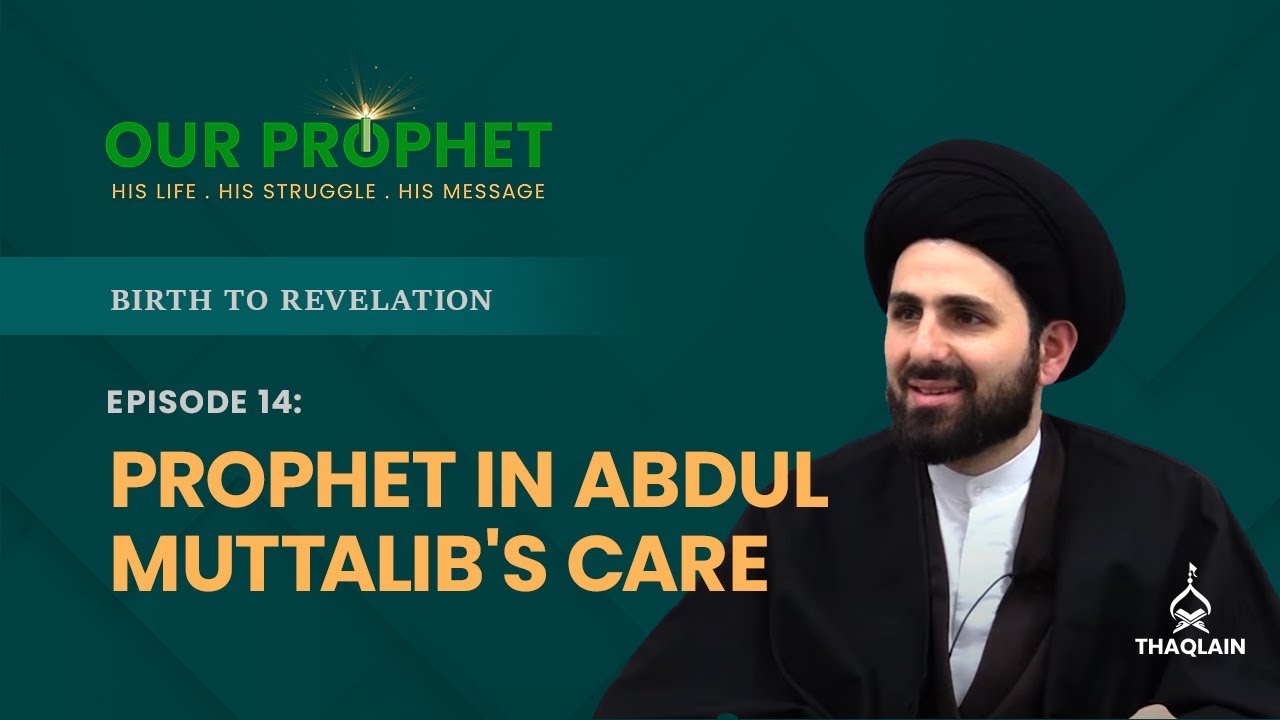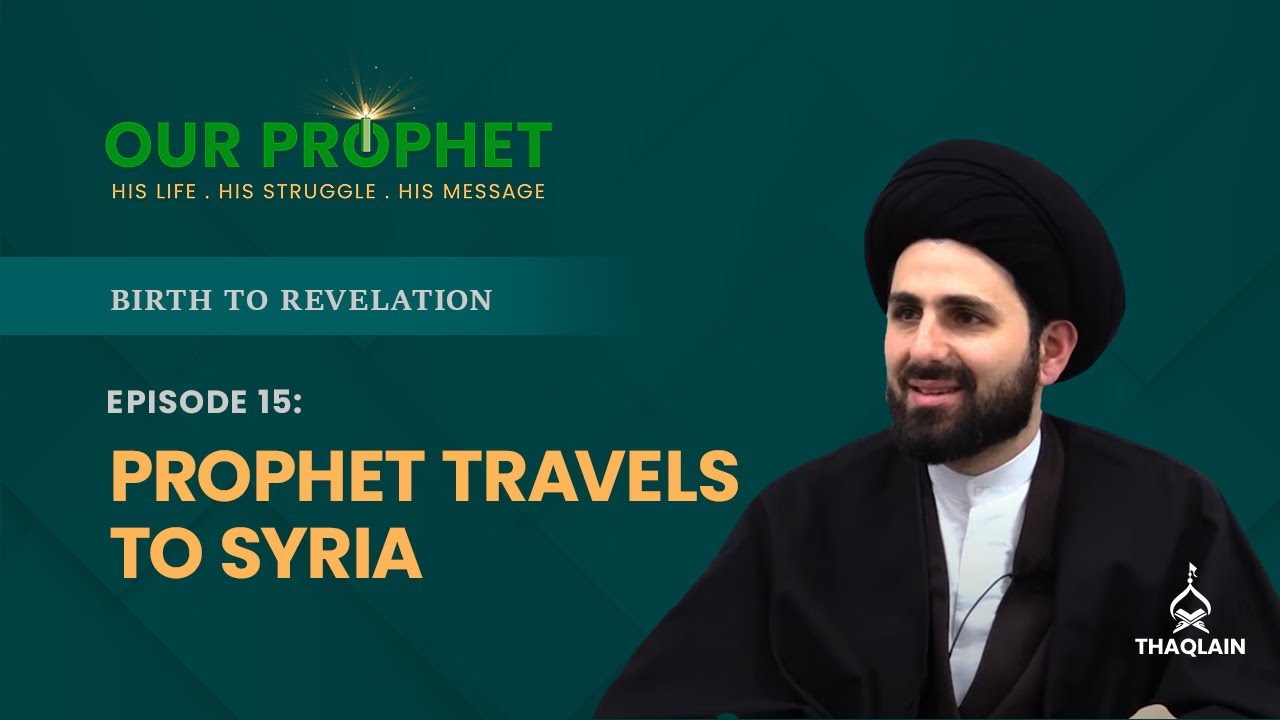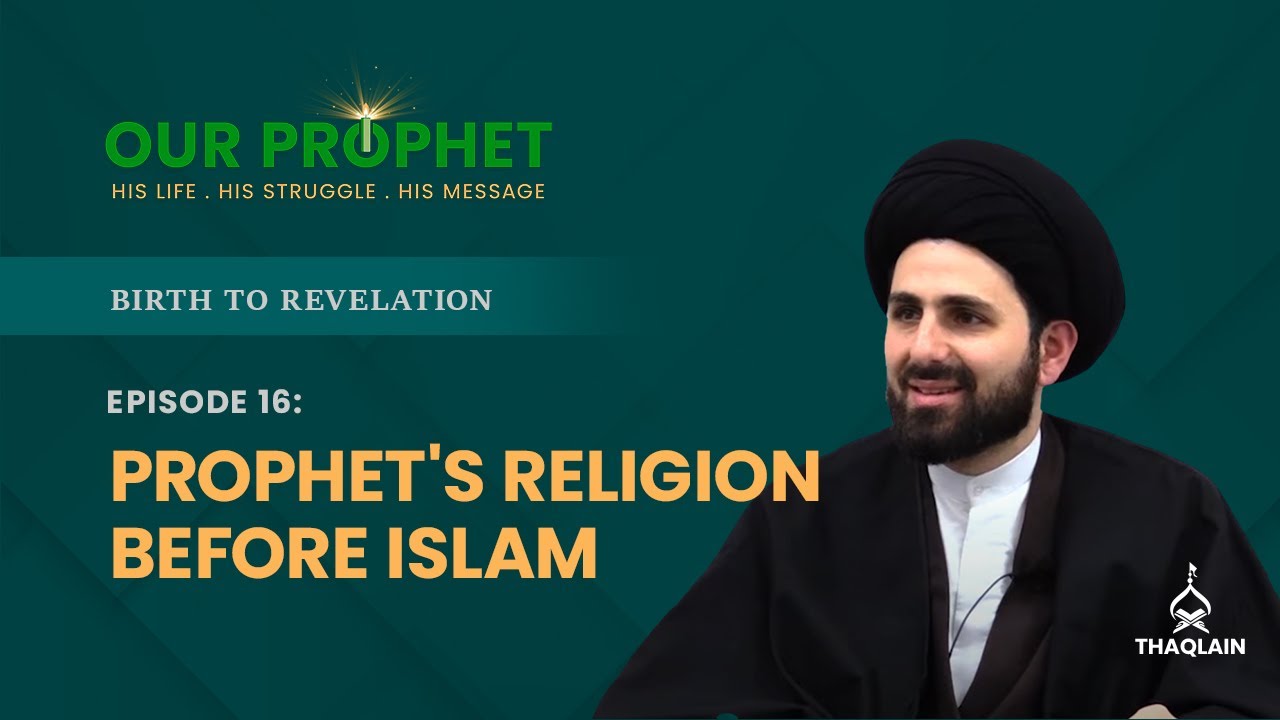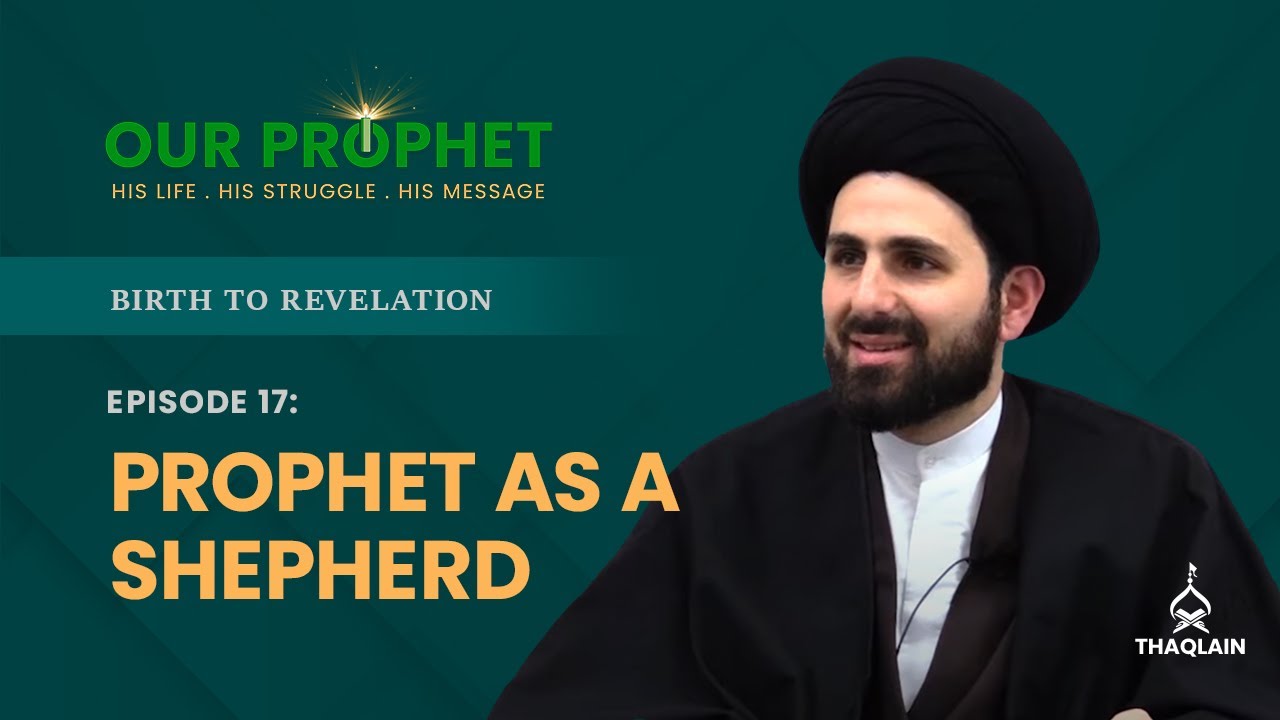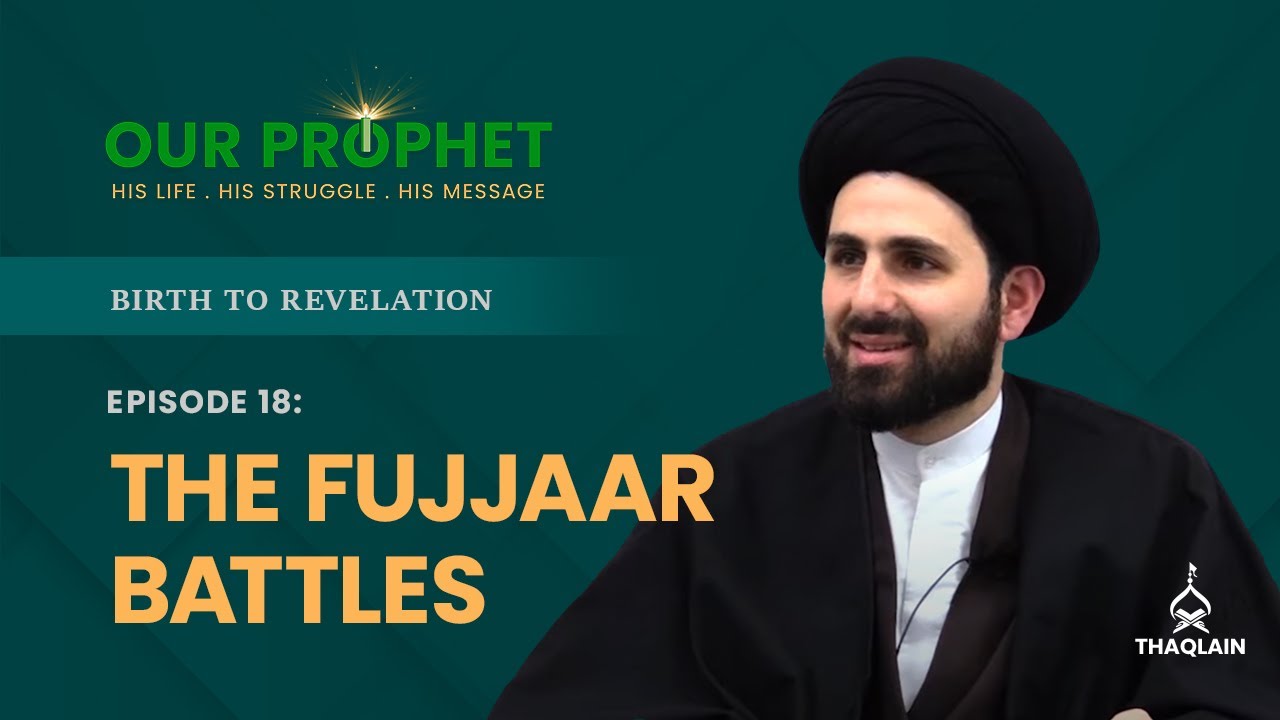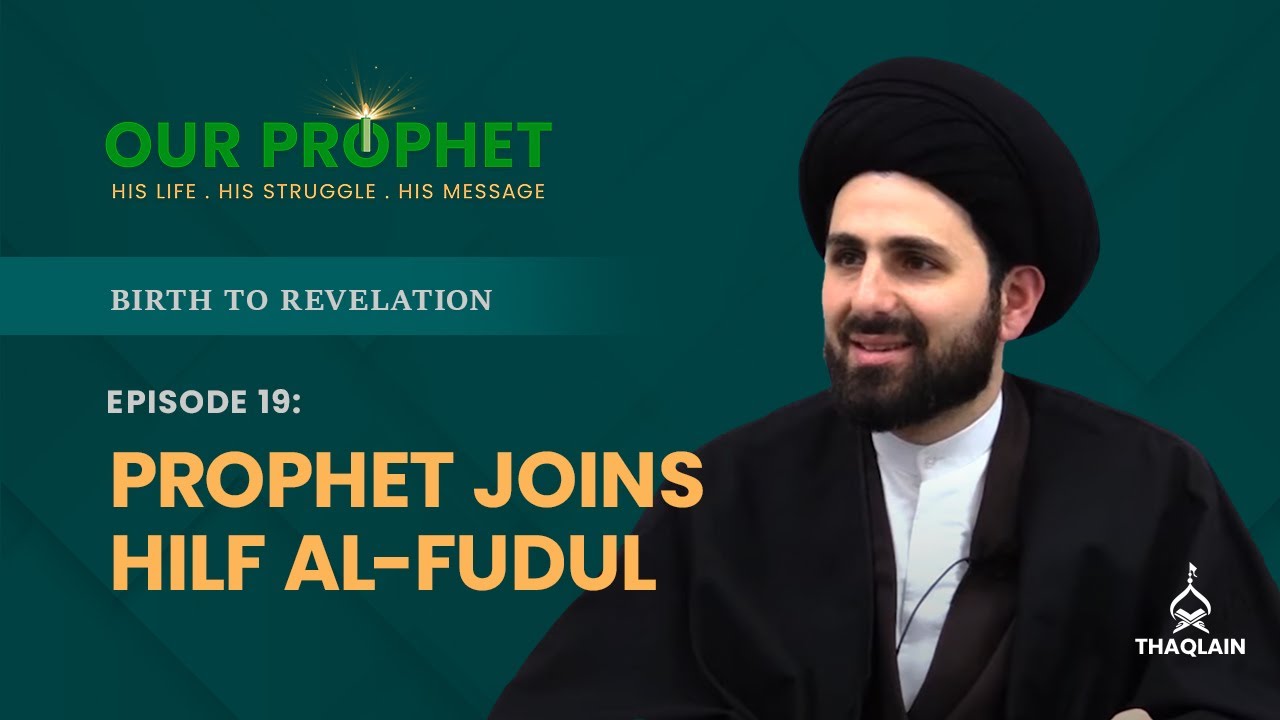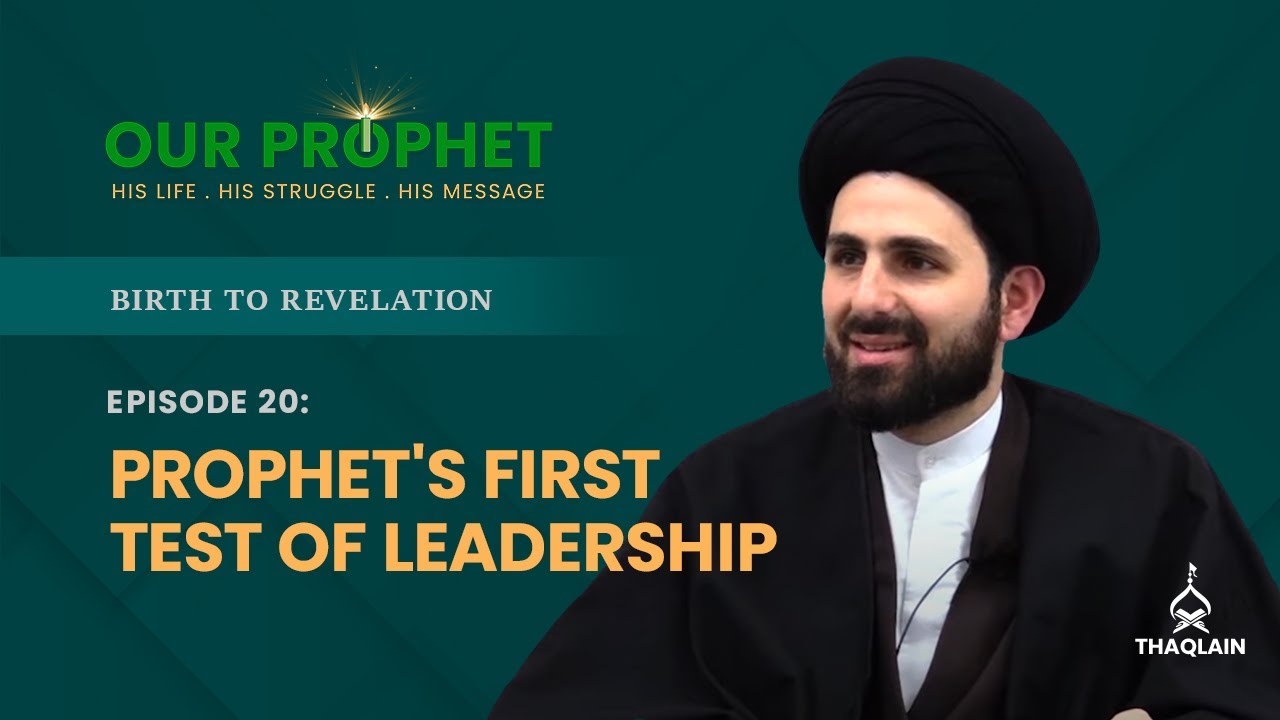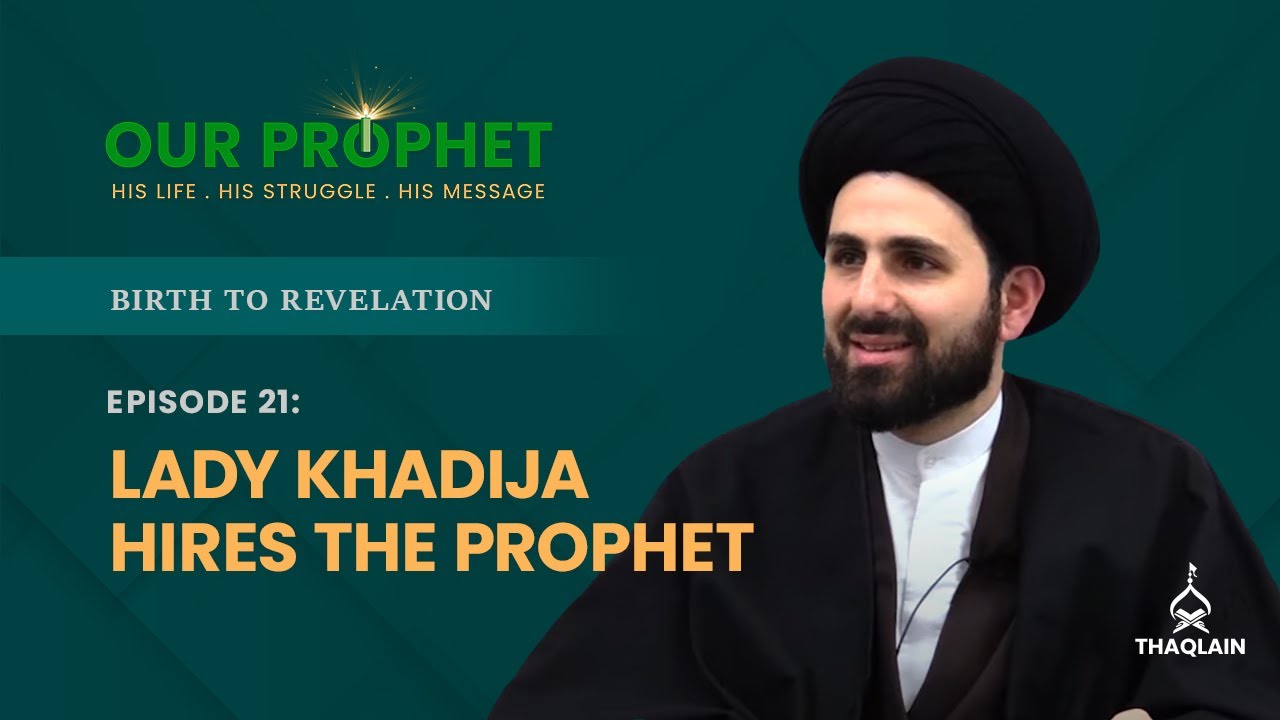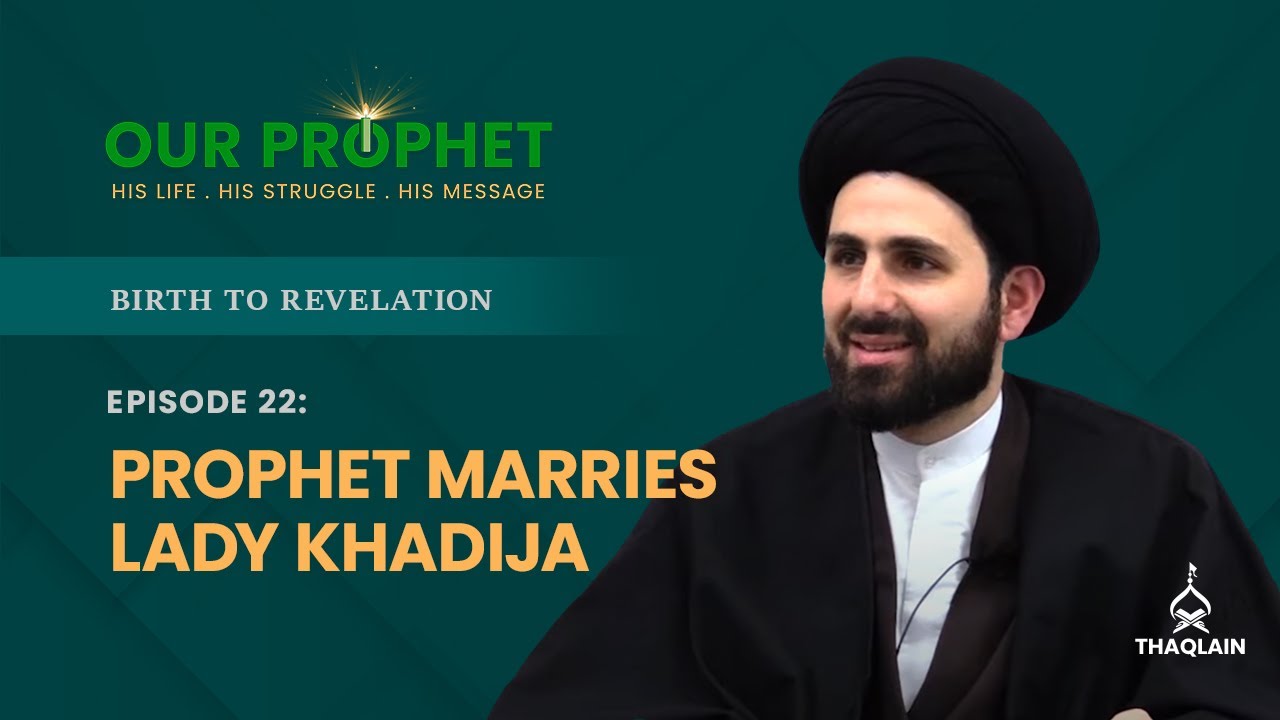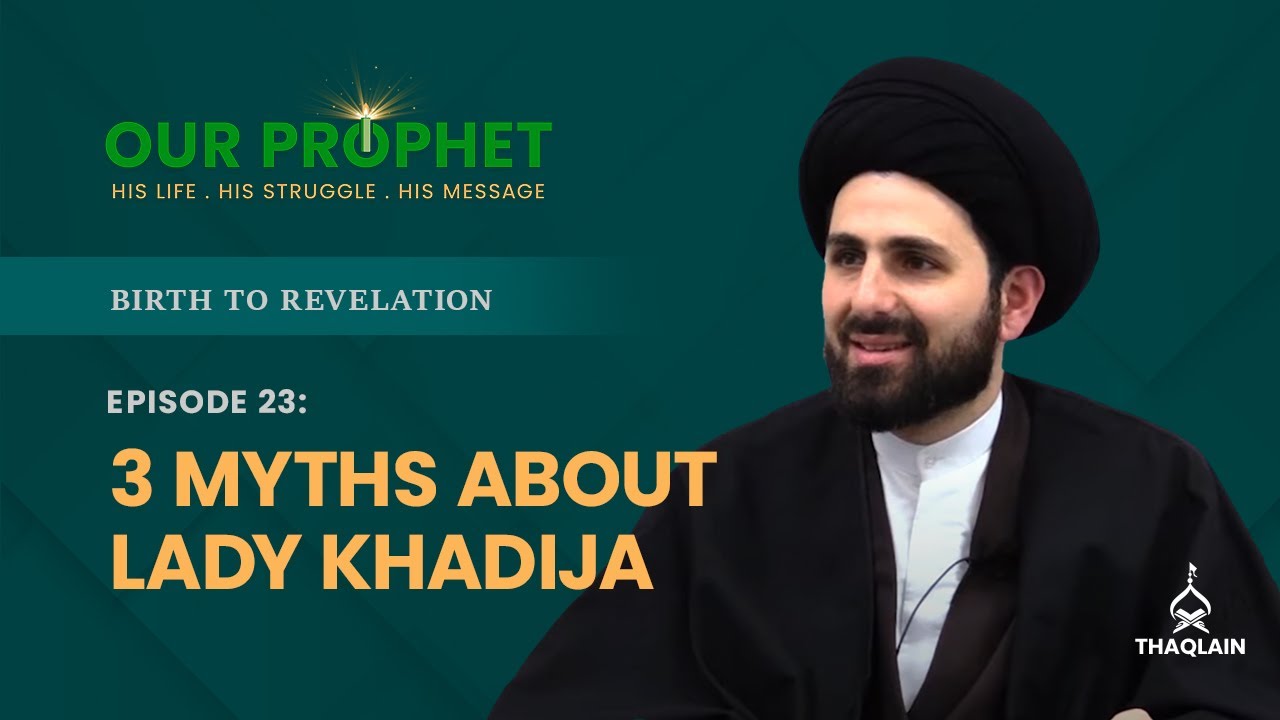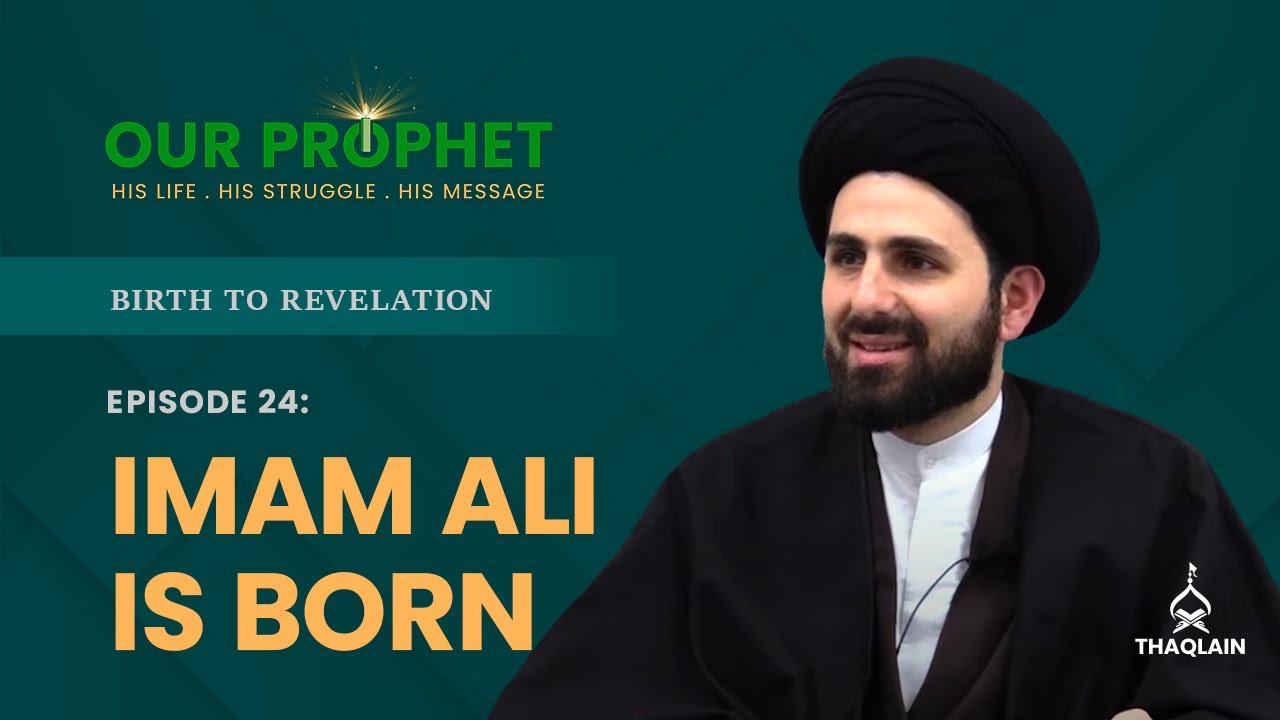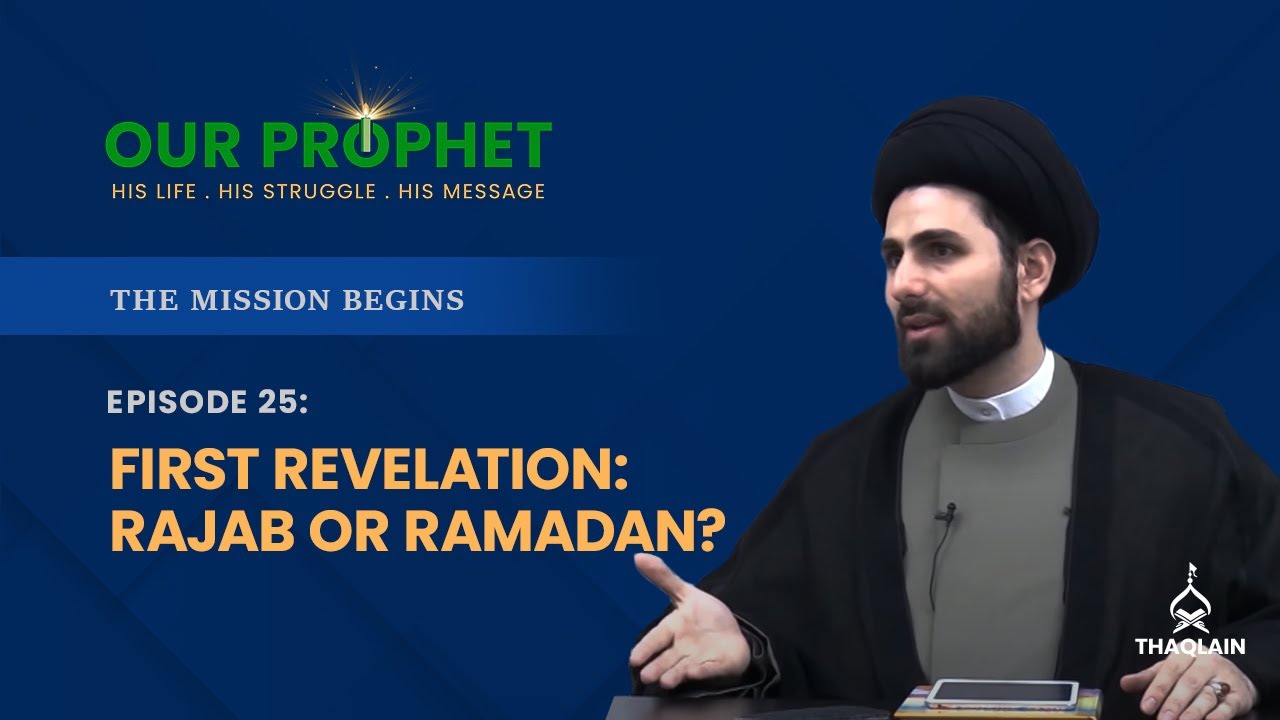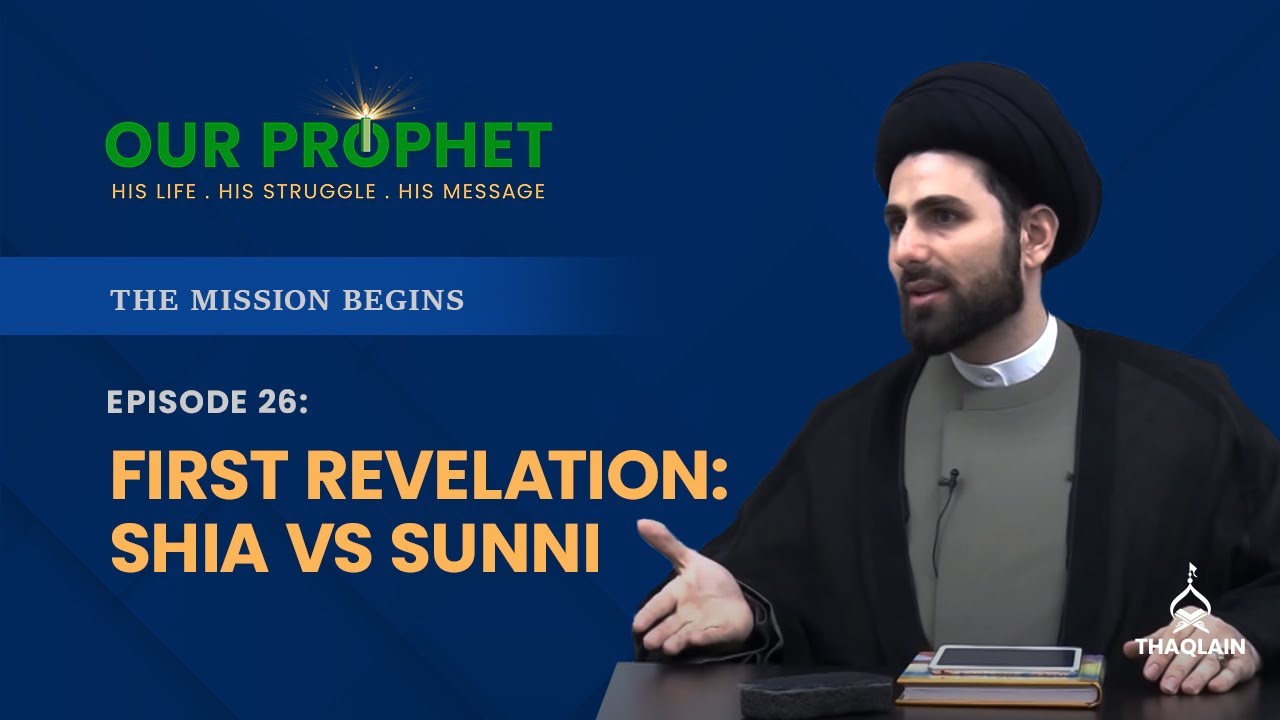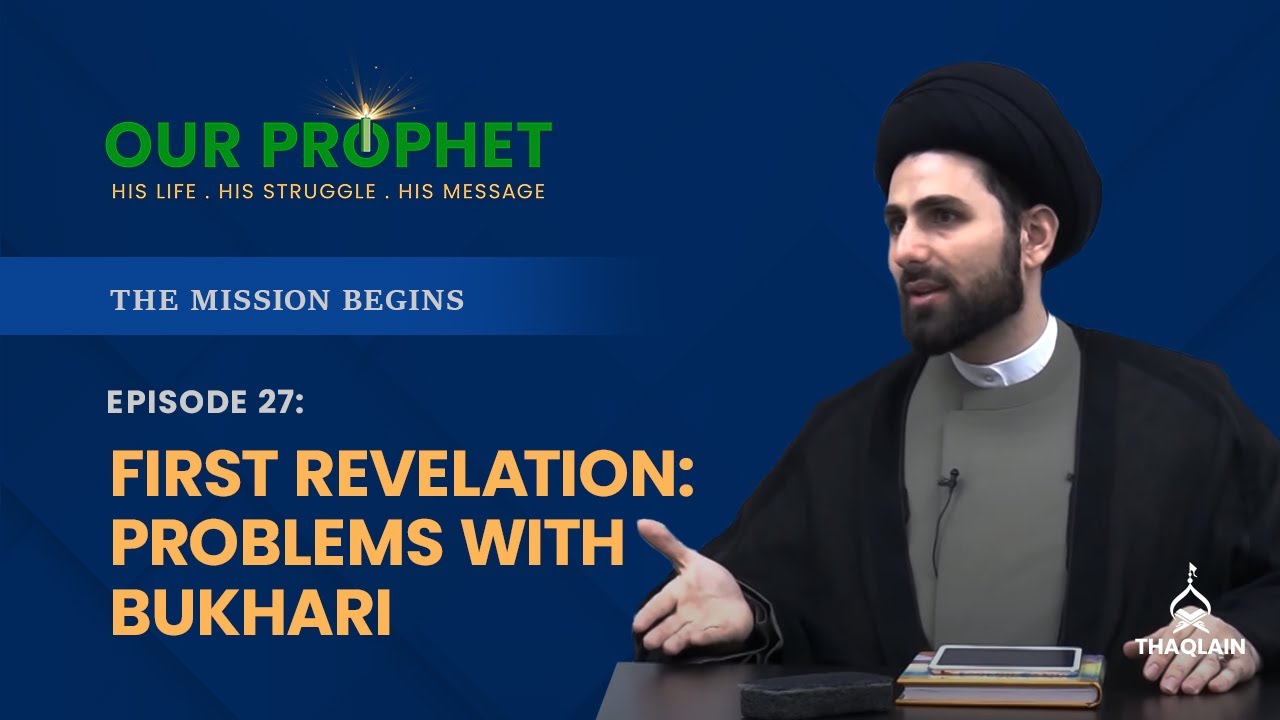Exile of Banu Qaynuqa and Prophet's Mercy for Jews - Our Prophet 6 - Foundations Of Islamic State
Now, the first Jewish tribe to be exiled from Medina was Banu Qaynuqa. Why? There is a reason behind that. They made a clear violation of the Treaty of the Prophet, to the point where the Prophet, salla Allahu alayhi wa alih, could not stand idle.Remember all these days and months, every day, the Jews would create an incident in Medina. The Prophet would stay silent. He had patience. But it reached a point where the Prophet could not stay silenced anymore, because they were making clear violations.
Basically, Banu Qaynuqa, they had a very strong economic presence in Medina. The famous markets of Medina were basically run by them. They were economically very well off. Now, the Muslims, they would go to their markets, they would buy and sell. And the Prophet, salla Allahu alayhi wa alih, encouraged the Muslims. He told them, yes, we are one nation. Go to their markets, buy from them, let them make money. Look at the spirit of generosity that the Prophet, salla Allahu alayhi wa alih, had.
One day, a Muslim woman went to their market. She wanted to buy something. They told her, uncover yourself. Remove your Hijab. We want to see your face and hair. She said, no, you don't have that right. They just wanted to give her a hard time and mock her. She said, no, I'm not going to do that. Here is what they did. She was sitting on the ground, picking up some goods, probably to leave, when they refused to do business with her, even though that was a violation of the treaty that they signed with the Prophet, salla Allahu alayhi wa alih, to treat Muslims like their own.
When she sat down to pick up her goods, a Jewish man came from behind her. He took the bottom of her garment and he tied it to her back. When she stood up, her back was completely exposed. Her rear was exposed. And all those Jewish men sat there, ah, ah, laughing at her. They made a scene from this lady. She started yelling. When she realized what they did to her and they uncovered her, she started yelling and screaming and asking for help. A Muslim man came. When he realized what happened, he was indagated. He was very angry. He started beating that Jewish man. He beat him so badly, he died. He killed him.
So, when the Muslim killed this Jewish guy, all the Jews, they came and they killed the Muslim man. News reached the Prophet, Ya Rasul Allah, a Muslim woman, she went to their market, and this is what they did to her. And all of them were an accomplice. They all laughed, all those tribal leaders, and they accepted what happened.
The Prophet, salla Allahu alayhi wa alih, came to them. He told them, look, that was the last warning. You have broken the treaty. You have made a clear violation. You signed that you would not harm any Muslim man, any Muslim woman. And today, in the market, you exposed a Muslim female in front of everyone. You have broken the treaty. Leave the city of Medina. Because that was one of the terms of the agreement, that if they break it, either the Prophet has the right to fight them or to imprison them, or just to ask them to leave. The Prophet, salla Allahu alayhi wa alih, expelled them from the city of Medina.
This happened in the second year of the Hijra. So, about a year after, the Prophet, salla Allahu alayhi wa alih, arrived in the city of Medina. Now, after all these incidents, by the way, this is like 1% of what they did, what I shared with you, every day there was an incident. What do you expect the Prophet, salla Allahu alayhi wa alih, to do? See a Muslim woman violated in broad daylight like that, and say, oh, no, I have to be patient? How much can you be patient? To what extent? What did she do to you?
They would make a joke out of the Muslim population there, and the Muslims couldn't take it anymore. We signed a treaty with you. We are treating you as one Umma. Our Prophet is telling us, go to their markets. Fine, let them make money. And this is how you pay back the Muslims? Do you find the command of the Prophet to have them leave that area of Medina populated by Muslims, to be an unjust one? After all those documents?
And remember, Banu Qaynuqa were not from the eight Jewish tribes whom the Prophet, salla Allahu alayhi wa alih, initially signed the document. They came from by their own request, they came to the Prophet. They told him, we also would like to sign this document. They came, and yet this is how they treated the Prophet and the Muslims.
Prophet told them, I issue a command to exile you. And they showed no repentance. See, had they come to the Prophet, O Muhammad, we apologize. Give us another chance. They would never apologize for their mistakes. Never! Not a single time you find them coming and apologize. That's how arrogant they were.
Had they come and apologized and promised the Prophet that this would not happen again, the Prophet would have forgiven them. But when they are so bold, so reckless, so shameless, what do you want the Prophet to do? So, the Prophet, salla Allahu alayhi wa alih, exiled them. Yes, that is part of the history. But this is why the Prophet, salla Allahu alayhi wa alih, treated them, you know, in that manner, because they were the ones who violated the clear clauses of the Constitution.
So, what are some of your thoughts about that? Because today, when you read the Prophet's history, from Non-Muslims perspectives, and especially from Orientalists, oh, see, he is so unjust. He just exiled them out of the city of Medina. And that is all they tell you. They don't tell you why, what happened? What is the document the Prophet signed with them? What are the crimes that they committed? That is unacceptable.
So, what are some of your thoughts on that? The Prophet exiling them. Now remember, the Prophet didn't kill them. He did not fight them. He did not imprison their woman. You just told them, Khalas. Leave. You guys can't sit here, and live here, when you have no respect for Muslims and you have broken the treaty. Leave! You can't be part of this one Umma, when this is how you want to react. And they showed no regret. They did not even come to apologize and promise that this would not happen. In fact, they signalled that this is going to be a daily thing. What do you do?
Yes, brother. [The Prophet was always patient. He should have just warned them, like the first, second, or third time, and he should have just keep warning] So, the brother is saying he was too patient with them. Well, see, the Prophet is also Rahma, right? When he wants to exile them, the Prophet wants to do that, when he is given them all chances. To show history, that I was merciful with them, I was gentle with them, and Muslims would be violated. But I gave them chance after chance. So, when I exiled them, they deserve to be exiled. So, no one can come and say, oh, you never gave them a chance. Maybe they would have repented.
Now, no one can make that claim. [Yes, but for three years though?] Yeah, for over a year. But see, that is the Rahma the of Prophet. The Prophet was not a man who was impulsive, where someone makes a violation, immediately, the Prophet wants to take action. No, this is the Messenger of God, and he is our leader and example. But the Prophet, you know, in the end, he made it very clear to them, that if this doesn't stop, you're going to get exiled. And they did. So, the Prophet just did not want to give any of his enemies any excuse. That, why didn't you give us another chance? He gave them many chances.
[Yes, because he doesn't act out of anger, he acts out of wisdom] It's based on wisdom and justice, not on anger. Because had he done it the first time, the Prophet knew what they were going to do. But had he exiled them the first time? Every owner said, oh, look at him. He got angry. He is impulsive, he is impatient, and he is unfair, and he kicked them out. The Prophet wanted to show to the world that, no, I am being fair.
[Okay, you see how the Prophet can tell the future, right?] Yeah, Allah Subhana wa Ta'ala would give him the insight into the future. That's another discussion. But basically, the Prophet, salla Allahu alayhi wa alih, was instructed by God to go ahead with the test of Allah Subhana wa Ta'ala. God wants to test this Umma. And these were elements in that test. Very briefly.
Any other ideas? Thoughts about the Prophet exiling Banu Qaynuqa? And remember, the Prophet, salla Allahu alayhi wa alih, did not fight them. He did not kill them. He just asked them, that's it, leave. And he made an agreement with them, that if they make a violation, they will leave, or they'd get killed or their women would be captured. The Prophet chose the lesser of the three. Leave. I don't want to fight you. Leave. Just don't be here anymore. You can. Yes, brother.
[So, these Jewish deceived Muslims again after the battle of Khandaq?] Many times! This was just the first one. This is just Banu Qaynuqa. Later on, we see, every single tribe that the Prophet, salla Allahu alayhi wa alih, made peace with, they actually went, conspired with the Mushrikin to kill the Prophet.
In fact, we'll talk about, I believe, Banu an-Nadhir. Banu an-Nadhir in the fourth year of the Hijra, we'll talk about this later. They actually, the Prophet was visiting them, I think, in a garden or farmland someplace. They actually tried to kill him. They actually had planned to kill him. When Jibra'il comes to the Prophet and he tells him, quickly leave.
They would come up with conspiracies every single day to kill the Prophet, to kill the Muslims, to create Fitnah. That was just the beginning. So, yes, in the Battle of Ahzab, the battle of Khandaq, all those battles, they really did play a role in encouraging the Mushrikin. They would tell the Mushrikin, come, we'll give you access to Medina. They would share sensitive national security issues. And that's why many of those Mushrikin found their way to those areas, because of the Jewish conspiracies. History cannot just ignore that, and overlook that.
The Prophet is Rahmah li 'l-'alamin [mercy for the worlds], but what do you do with criminals like that? Treason. That's treason. Even in our own law, even in the US. What does the Constitution say about treason? US Constitution, until today, what does it say about treason? Death sentence. Yes, the Constitution says that the death sentence can be applied to the one who commits treason. And in fact, in the 1960s, the Rosenbergs, who were discovered to be spying and, I don't know, collaborating with the enemy, I think with the Communists, they were executed here in the US. That's treason. These people committed treason.
Later on, we see how they collaborated with the enemy and they committed treason. And, remember the Prophet was still patient. The Prophet said, Banu Qaynuqa, leave! But the others; Banu an-Nadhir, Banu Quraydha, the eight tribes from the Owz and Khazarj from the Jewish tribes, the Prophet still respected them. The Prophet said, okay, Banu Qaynuqa made a violation. It shouldn't impact the others. The Prophet stayed respectful with them, but they kept violating one after the other.
[Sorry, but it's also important for him to set an example, because if he lets that go then the rest of the tribes are going to..] Exactly. You don't want to encourage others to keep making violations. You have to draw red lines. There must be consequences too. There have to be consequences. If you don't put consequences, they won't take you seriously.
So, that's unfortunately part of the history of what happened. Now, the Prophet, salla Allahu alayhi wa alih, he was always very gentle with them. In fact, we have hadiths in Sunni and Shi'a books, that the Prophet, salla Allahu alayhi wa alih, when he would hear that a Jewish person was sick, the Prophet, salla Allahu alayhi wa alih, would actually go and visit them. He would visit their sick.
Once the Prophet, salla Allahu alayhi wa alih, was sitting when the Janaza of a Jewish person passed by, the casket of a dead Jewish person passed by, the Prophet, salla Allahu alayhi wa alih, stood up. He stood up in respect for that Janaza. So, the Muslims told him, Ya Rasul Allah, it's a Jewish person. They thought the Prophet mistook him for a Muslim, it's a Jewish person. Why would you stand up? Why did you give him respect? The Prophet, salla Allahu alayhi wa alihi, said: alaysat Nafsan? Isn't he a human being? Isn't he a human being?
You see the humanitarian lens through the Prophet, salla Allahu alayhi wa alih, would see others? Even though they had a problem with the Prophet, the Prophet never dehumanized them. They are still humans. Alaysat Nafsan? Beautiful response. Is he as a person? Is he a human being? Is it he has soul. That means he deserves to be respected as a human being. And I will give him that respect. This is how he would treat them, and that's how they treat him.
And many, many examples here. How some Jewish neighbours in Medina would give him a hard time. Some of the verbal attacks they would make against him. And the Prophet was always patient, patient, patient, patient. But sometimes you had to draw clear lines. So, there are many, many examples, I just shared a few with you, of them creating havoc and problems for the Prophet, salla Allahu alayhi wa alih. And many verses of the Quran would admonish them, give them advice, even threaten them, but nothing worked with them.
They were so stubborn. And from day one, they were just determined on fighting the Prophet. They were determined that we'll never accept this message. And the reason why they even signed the treaty to begin with, they realized, you know what? Let's make one Umma, become powerful. Then we will take over, slaughter those Muslims, and will be the leaders of the world in Arabia. That was their intent in the beginning. They revealed their true colours later. But, of course, Allah Subhana wa Ta'ala supports his Prophet and Allah Subhana wa Ta'ala granted victory to those Prophet, salla Allahu alayhi wa alih.


